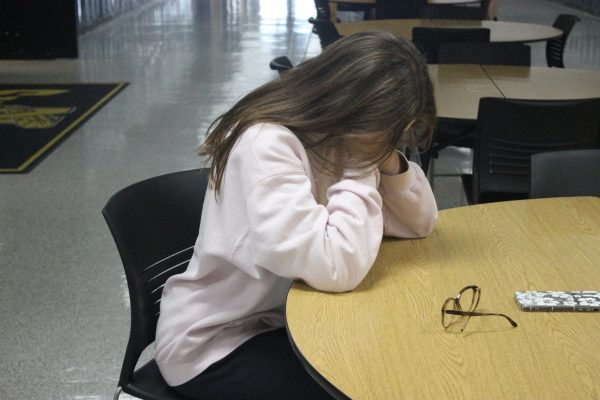Destigmatization of mental illnesses needed for patients
According to nami.org, 1 in 5 children ages 13-18 have or will have a serious mental illness. That means 20% of all teenagers struggle with an issue that cannot be seen from the outside, and may even be brushed off by others. People tend to have certain negative beliefs about mental health. Whether it is believing that those who suffer from eating disorders should just “eat a cheeseburger,” or thinking that depression is just a “fancy word for feeling bummed out,” the stigma surrounding mental issues is a serious roadblock for those struggling to get better.
Many mental health problems are caused by factors that cannot be controlled. Chemical imbalances and family history can cause depression and anxiety. Childhood experiences can also be a factor. Traumatic events affect mental wellness, and can lead to Post Traumatic Stress Disorder.
Another way that mental illness in children and teenagers is overlooked is the disciplinary system. When a child acts out or behaves badly in class, they are punished, when acting in this way can be an indicator of trouble at home. Anxiety or a history of abuse are often behind classroom outbursts. The student’s situation and mental health should be taken into account before making judgments on their character.
Mental illness is a serious medical issue. Just as a someone who is physically sick needs medical care, so do those suffering from mental illness. A diabetic would not be shamed for using insulin. Medication for mental issues has a stigma surrounding it, but it is just as vital to those who need it as patients who need heart medication or an IV.
Taking medication is okay. Seeking professional help is okay. The stigma that surrounds seeking treatment does not outweigh the benefits of finding a path towards mental wellness.

Katherine is a senior and has been a member of The Newtonian staff for three years. She served as the News Editor sophomore year, the Co-Editor-in-Chief...









